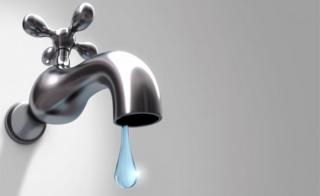
Image copyright
SPL
Some parts of England will run out of water within the next 20 years unless “urgent action” is taken.
That’s the view of the Public Accounts Committee (PAC) in a report on the state of water supplies.
It’s calling on the government to establish a league table for water companies to pressure them into dealing with leaks.
It also wants efficiency labels on domestic products like washing machines and dishwashers to be made compulsory.
The government responded by saying it had already initiated a programme to improve performance in the water industry.
The PAC is accusing ministers and regulators of taking “too ponderous” an approach to improving infrastructure.
In their report, the MPs say the Department for Environment, Food and Rural Affairs (Defra) has shown a “lack of leadership” on the issue.
“Defra has failed to lead and water companies have failed to act,” committee chair Meg Hillier MP said.
“We look now to the department to step up, make up for lost time and see we get action before it’s too late.”
Image copyright
PA Media
“One-fifth of our daily supply is wasted”
According to the report, people in England and Wales use about 14 billion litres of water a day – one-fifth of which is wasted through leaky pipes.
It calls for water companies, which were privatised in 1989, to be ranked on their performance, and for a “coordinated national message” to encourage people not to waste water.
The MPs said every domestic product sold in the UK that used water, such as washing machines and dishwashers, should have a label on it to show how efficient it was. Also, when building new homes, the government should make water efficiency as much of a priority as energy efficiency and low-carbon heating.
“Jaws of death”
Last year, the chief executive of the Environment Agency (EA), Sir James Bevan, said that within the next two decades the UK would be facing “the jaws of death”.
This is the point at which, “unless we take action to change things, we will not have enough water to supply our needs”.
The unprecedented dry and sunny weather in May, coupled with the Covid-19 lockdown, led to a record-breaking demand for water.
Image copyright
Getty Images
According to the trade association, Water UK, average demand surged by 20%. Yorkshire Water warned that its reservoir levels were lower than normal, and other companies urged customers to limit watering lawns and washing cars.
The PAC said last year’s “Love Water” campaign had so far had little impact, mainly because there had been no central funding, and none yet secured from any of the water companies.
In a response to the report, Defra referred to its National Framework for Water Resource, launched in March. It said: “We are already taking a tougher approach to poor performance and wastage within the water industry, while also finding ways to increase supply.”
It urged people to be “mindful of their usage”.
Vanessa Speight, professor of integrated water systems at Sheffield University, told BBC News: “The UK has some of the oldest water infrastructure in the world, and while it has served us well, it is now time to look to the future with significant water infrastructure investment that will address leakage as well as related reliability and water quality issues.
“Achieving the desired water efficiency targets is going to require a holistic review of infrastructure investment, building regulations, and related practices.”
People in certain parts of the UK, particularly in the South East, have less water available to them than those in countries like Morocco, according to several water companies in the region.
The water companies that would face the most acute pressure for demand – if there was to be a very dry year – are: Thames Water, which supplies 7.98 million people; Affinity Water which supplies 3.2m people, and Southern Water, which supplies 2.5m people.
From information provided by these companies to the BBC, all of them have already passed the so-called “jaws of death”. This means they have very limited reserves. So, in a period of exceptionally low rainfall, they may well need to put emergency measures in place such as hosepipe bans.
The companies maintain they are doing what they can to prepare.
Legally every five years they must set out plans for how they will deal with supply and demand over the next 25 years.
Thames Water has a scheme to help customers buy water butts.
In its five-year plan, published on Wednesday, the EA said it was committed to investing in climate resilience, “ensuring the nation is prepared for flooding, coastal change, and drought”.
However, it said it “needed to secure the income and investment needed”.
Read MoreFeedzy


